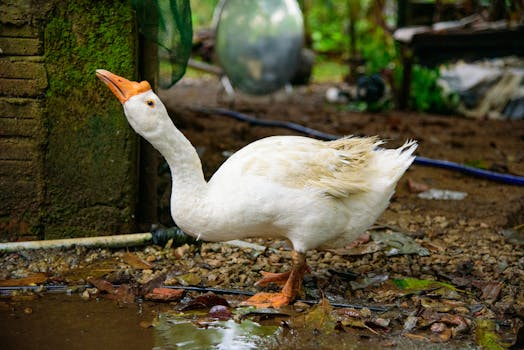Eco-Accommodations Rise: Choosing Certified Stays for a Lighter Footprint.
In today’s world, more and more people are becoming environmentally conscious and are looking for ways to reduce their carbon footprint. This mindset has extended to the travel industry, with a growing demand for eco-friendly accommodations. As a result, eco-accommodations are on the rise, providing travelers with the opportunity to make a positive impact while exploring the world. But with so many options, how do you know which accommodations truly prioritize sustainability? The answer lies in choosing certified stays for a lighter footprint. In this article, we’ll delve into the rise of eco-accommodations and why choosing certified stays is the best way to ensure a more sustainable and responsible travel experience.
The Growth of Eco-Accommodations
The concept of eco-accommodations is not a new one. However, with the rise of sustainable tourism and an increasing awareness of the impact of travel on the environment, the demand for such accommodations has increased significantly in recent years. According to a report by the Global Sustainable Tourism Council, eco-accommodations are the fastest-growing segment in the tourism industry, with an annual growth rate of 20-30%. This growth can be attributed to the changing attitudes of travelers, who are now actively seeking out options that align with their values of sustainability and responsibility.
What Makes an Accommodation Eco-Friendly?
While the term “eco-accommodation” may seem self-explanatory, there are various factors that make a property truly eco-friendly. These include:
1. Energy Efficiency
Eco-accommodations prioritize the use of renewable energy sources such as solar, wind, or hydro power. By utilizing these sources, they significantly reduce their carbon footprint and promote sustainable energy practices.
2. Water Conservation
Another crucial aspect of eco-accommodations is their focus on water conservation. This could include implementing technologies like low-flow showerheads and faucets, as well as harvesting rainwater for various purposes.
3. Waste Reduction
From recycling and composting programs to reducing single-use plastics, eco-accommodations are committed to minimizing waste and promoting a circular economy. They also encourage guests to participate in their sustainable practices.
4. Sustainable Materials and Design
Eco-accommodations use sustainable materials in their construction and design. From renewable wood and bamboo to energy-efficient lighting, these properties are designed with the environment in mind.
The Importance of Choosing Certified Stays
While many accommodations may claim to be eco-friendly, the best way to ensure their commitment to sustainability is by choosing certified stays. There are various certifications and labels that distinguish truly eco-accommodations from those that simply market themselves as such.
1. LEED Certification
The Leadership in Energy and Environmental Design (LEED) certification is an internationally recognized standard for green building design, construction, and operation. Accommodations with this certification have met specific sustainable performance criteria, making them a trustworthy choice for environmentally conscious travelers.
2. Green Key Certification
Hotels and other accommodations with the Green Key certification must fulfill a rigorous set of ecological and sustainable criteria. From water conservation and energy efficiency to staff training and guest engagement, this certification ensures a truly green stay.
3. Rainforest Alliance Verification
The Rainforest Alliance Verification is a globally recognized certification that ensures accommodations meet sustainable tourism criteria based on environmental, social, and economic factors. This includes waste and pollution reduction, support for local communities, and the protection of natural areas.
The Benefits of Staying at Eco-Accommodations
The rise of eco-accommodations is undoubtedly a positive shift in the travel industry. By choosing certified stays, both travelers and the environment can reap numerous benefits, such as:
1. Minimizing Your Carbon Footprint
By staying at an eco-accommodation, you are contributing to the reduction of carbon emissions and supporting sustainable tourism practices. This impact may seem small, but if more and more travelers make the same choice, it can lead to significant changes and a more sustainable future.
2. Enhanced Travel Experience
Eco-accommodations not only prioritize sustainability but also offer unique experiences that may not be available at traditional hotels. From farm-to-table dining to outdoor activities that promote nature conservation, these stays provide travelers with a deeper connection to their surroundings.
3. Supporting Local Communities
Eco-accommodations often prioritize working with local communities and businesses, thereby boosting the local economy and providing employment opportunities. By staying at these properties, travelers can contribute to the well-being of the communities they visit.
Conclusion
Eco-accommodations are on the rise, and for good reason. By choosing certified stays, travelers can make a positive impact while still enjoying their vacation. These properties not only prioritize sustainability, but they also offer unique and meaningful experiences. So next time you’re planning a trip, consider staying at an eco-accommodation for a lighter footprint and a more responsible and enriching travel experience.










